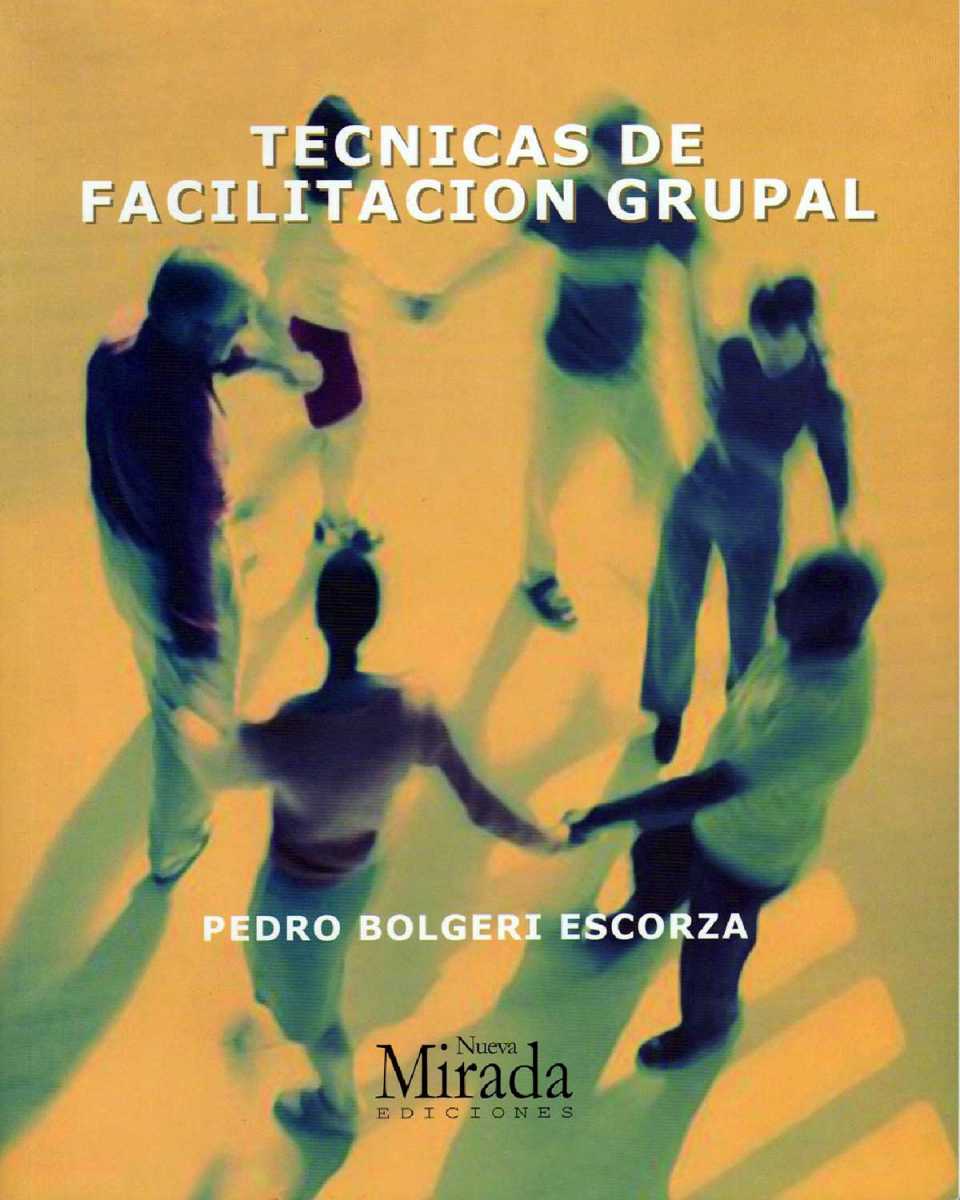
Techniques of Group Facilitation
Pedro Bolgeri Escorza Psychologist
Santiago, Chile
A book by Pedro Bolgeri Escorza
Tecnicas de Facilitacion Grupal [Techniques of Group Facilitation], by Pedro Bolgeri Escorza. Nueva Mirada Ediciones: Chile, 2007.
This book is in Spanish. The book’s discussion of OH Cards, in the original Spanish, is available in PDF format (download the PDF). See below for a translation.
About the Author
Pedro Bolgeri Escorza is a psychologist from the Unversidad de Chile and has a Master degree from the Universidad de Santiago de Chile. He’s an accredited specialist in Experiential Humanist Psychotherapy and has taken specialized courses in psychodrama, imaginary techniques, psychotherapy, and facilitator techniques. Pedro Bolgeri Escorza lives in Coquimbo (Region de Coquimbo), Chile, and is on the academic staff of the Universidad de La Serena, in the Psychology Department. He also coordinates the university’s Personal Training Program. The book is based on a wide range of sources and experiences, incorporating 35 years of work with therapeutic and personal development groups, starting with the author’s involvement in 1972 with the Inner Liberation Movement (Movimiento de Liberación Interior), lead by SILO.
In the role of facilitator or participant, Pedro Bolgeri Escorza has taken part in many therapeutic and teaching workshops in which he experienced, learned about, created, and applied methodologies for enhancing self-knowledge and improving individual and social skills.
Techniques of Group Facilitation (English Translation)
OH Cards, page 56-57:
16. OH Cards
The group sits in a circle and in the center we place a cloth on which we put the cards, face down, in two rows: the concept cards in one row and the picture cards in the other row. Someone who wants to start goes to the center, concentrates on his/her emotional situation, and with eyes closed leads his/her hand, palm down, over the cards, to “feel” which one he/she will pick up. The same procedure is done with both rows.
After everyone in the group has done this, each member of the group looks for a place in the room where he/she can observe the cards and the impression they made. Very often, people will be astonished to see how the concept and picture cards will be pertinent, bring up unthinkable meanings, and provoke in them new and interesting states of conscience.
In a second stage, those of the group willing to do so can present their cards and the meanings discovered for them. It is important that they relate what they observed with their own experience, avoiding conventional or abstract reasoning. If they wish to do so, they can ask the group for feedback.
